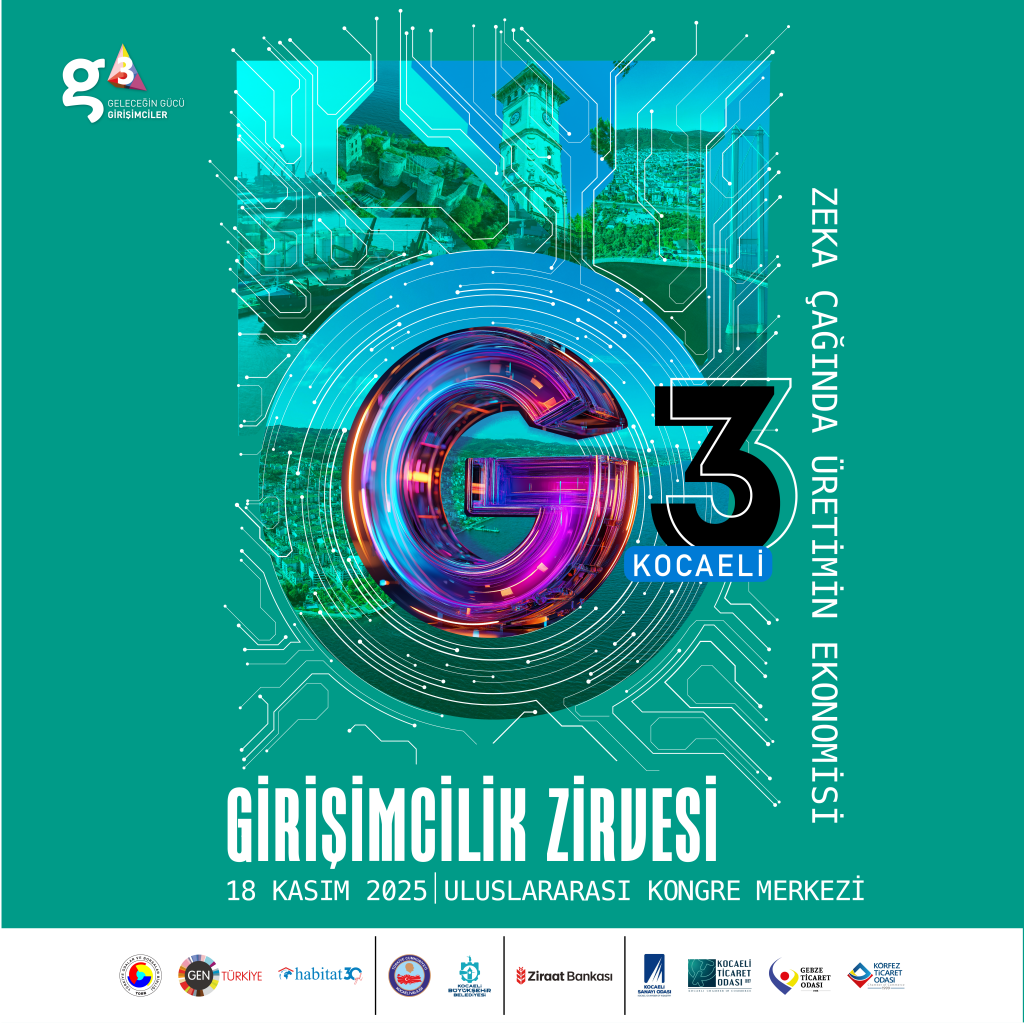“The Key to Life Satisfaction for Youth is Finding a Job”
The results of the third report of research regarding well being of status of youth in Turkey examining the life quality of youth in our country in a broad context were announced to public through an online meeting.
Third Report of Research Regarding Well-Being of Youth in Turkey which realized under the partnership of Habitat Association and RWE Infakto, has been published.
Report for Well-Being of Youth in Turkey which was first published in 2017 and provided the concept of “House Youth” to literature, gathered data regarding the satisfaction of young people in life and the extent of their hopes from future in 75 titles from the cultural habits from their entrepreneurial tendency. For the research, face to face meetings were held in 16 provinces with 1.230 young people representing the total urban youth in Turkey. The study was carried out in partnership with Habitat Association and Infakto RW.
In the report, the quality of life, well-being and satisfaction expectations of young people are evaluated in comparison with 2017 and 2019 results from many different aspects such as health, financial situation, education, home and urban conditions, risk and safety, participation and relationships. This year’s report also contains additional questions regarding the effects of the Coronavirus epidemic and the generational perception and belonging of young people.
The featured topics were evaluated in the session with the participation of Sezai Hazır, Chairman of the Board of Habitat Association, and Prof.Dr. Emre Erdoğan, Founder of Infakto RW.
“The Key to Life Satisfaction for Youth is Finding a Job”
Sezai Hazır, Chairman of Board of Habitat Association underlined that the satisfaction of young people is parallel to their employment and working status and their expectations on issues such as social rights and freedoms are overshadowed by their concerns about earning a living, Sezai Hazır stated “When we look at the whole report, we realize that young people study in order to have a job, to gain a place in society and to realize themselves. The fact that this rate remains at 47 percent in job seekers youth although 65 percent of working youth are satisfied with their lives, this fact is in the nature of confirming this connection we have established between having a job and satisfaction. ”
“Sufficient Job Opportunities Cannot Be Created for Young People”
Sezai Hazır continued his explanations regarding the report as follows, “73 percent of the youth answer the question “ If you look for a job for any reason, can you find a job easily? ” as “It would be difficult to find”. They state that the most important reason for the difficulty is not finding a suitable job or a reference to get a job, but that there are no job opportunities. Sufficient job opportunities cannot be created for young people. From our point of view, the most important output of these data is that we need to work much harder to direct young people to entrepreneurship and to ensure that they adapt entrepreneurship as a career field. Supporting and encouraging entrepreneurship is of great importance not only for young people to establish their own initiatives, but also for employment opportunities that can be created by increasing the number of enterprises to be established. However, report shows us that due the perceptions of young people regarding entrepreneurship,we still have a long way to go. ”
***
Some other remarkable findings in the report are as follows:
“There is a significant decrease in financial situation satisfaction”
The ratio of young people who are satisfied with their financial situation has decreased significantly compared to previous research, it has decreased from 61 percent in 2017 to 47 percent.
“Employment Cannot Be Created For New Graduates”
While no decrease in the proportion of working youth is observed, the ratio of young people seeking a job has increased by 5 percentage points to 18 percent when compared to 2019. It is evaluated that the emergence of this table arises from the difficulty confronted by graduated students in finding a job.
“Young People Do Not Lean Towards Both Distance Education And Working From Home”
69 percent of working youth prefer working in workplace. The rate of those who stated that they prefer flexible working and distance working styles was 23 percent and 4 percent, respectively.
66 percent of the young people participating in the study state that they are not satisfied with the education they received. 73 percent of the youth stated that they find face-to-face education more beneficial than distance education. The most important factor in the emergence of this table is that young people cannot leave their home during long quarantine periods and cannot meet their socializing needs with their colleagues / school friends.
“Financial Burden Caused Coronavirus Epidemic”
During the coronavirus epidemic, approximately half of the young people (47 percent) whose household income was 3,000 TL and less stated that they had expenses such as rent, electricity and water that they could not pay. Again in this period, approximately one third (31 percent) of the young people whose monthly household income was 3,000 TL and less borrowed from banks or acquaintances. In addition, 26 percent of the young people with an income of 3,000 TL and less lost their jobs during the coronavirus period.
“Are Social Rights and Freedoms or Career in the Foreground For Young People?”
The ratio of young people thinking of transmigrating increased from 25% in 2019 to 31% in this study. When the reason was asked to these young people, having better job opportunities abroad ranked first with 57 percent. On the other hand, the ratio of those who want to transmigrate due to insufficient personal freedom has decreased to 7.5 percent with a 4 percentage point decrease compared to the previous report. These figures show that young people’s concerns about gaining a place and existence in the society in line with their identities are replaced by the concerns of finding a job in order to meet their basic needs and to sustain their lives.
“Do Housewives Consider Entrepreneurship as a Career?”
While 63 percent of the youth stated that they wanted to establish their own business in 2017, it is seen that this ratio decreased in 2019 and 2020 and half of the young people participating in the study wanted to become entrepreneurs. Fluctuations in the economy and the insecurity created by the bad course of the economy make it difficult to take risks among the reasons for the decline in the motivation of young people to become entrepreneurs.
The entrepreneurship tendency, which is 54 percent in the 18-24 age group, decreases to 44 percent in the 25-29 age group. In 2019, the ratio of young people seeking job and also desiring to establish their own business was higher (62 percent), while this trend was 54 percent for employees, 50 percent for students, and only 29 percent for home youth. When the same question is asked again in 2020, it is seen that 56 percent of job seekers, 55 percent of students and 54 percent of employees desire to establish their own business. While there is no change in this trend for home youth compared to the previous year, only 28 percent of house youth stated that they want to establish their own business.
It is considered that one of the biggest obstacles for development of entrepreneurship, especially among young people, can be associated with the status of “dependency”. This dependence explains the fact that “House Youth”, who do not have education nor employment and do not participate in the labor force and do not seek a job, have less motivation to become entrepreneurs than other groups. The fact that these young people, who are dependent on the households even in meeting their basic needs, are dependent on access to capital and are not a part of any network other than their nuclear and close relatives, pose a great obstacle to developing their business ideas and accessing capital.
“In-House Entrepreneurship Is On The Rise”
As a reflection of the economic conjuncture in Turkey and world-wide, it is seen that in-house entrepreneurship becomes increasingly widespread. In the report, 56 percent of currently working individuals stated that they wanted to establish their own business, and the fact that this figure increased by 2 percent compared to the previous report shows that the entrepreneurial motivation of working individuals developed and increased. In the emergence of this situation, the most critical issue for working individuals is that they are not alone in having a certain income and creating capital. On the other hand, another important issue is the incentives and capital support of institutions and / or companies for their employees with entrepreneurial motivation. The “win-win” relationship between the company and the employee incites in-house entrepreneurship.
“Does Z Generation Feel More Lucky Or Unlucky When Compared To Parents?”
The young people participating in the study were asked whether they felt more lucky or unlucky when compared to their parents. Accordingly, 44 percent of the youth feel more lucky than their parents, while 26 percent feel less unlucky. 27 percent people stated that they did not see any difference between themselves and their parents in terms of luck. Almost half of the 18-24 age group young people feel more lucky compared to their parents, while this rate decreases to 38 percent in the 25-29 age group. The main difference between the two age groups is that a significant part of the 25-29 age group consists of individuals who have completed their education and are candidates for employment or working. Finding a job and the satisfaction of the individuals in this group play a determining role in making them feel lucky or unlucky.
“Z Generation is More Sensitive Than Previous Generations on Issues such as Gender Equality and Global Warming”
Although they were born into an era where the development of technology was faster than ever and did not see great wars and destructions, the reasons why 56 percent of the Z generation did not feel lucky compared to their parents are the problems such as unemployment, dissatisfaction with the education they received and the climate crisis that concerns the whole world.
Another important issue is that the sensitivity Z Generation to issues such as human rights, animal rights and gender discrimination is more prominent than other generations. 52 percent of Z Generation individuals participating in the research find themselves more sensitive to issues such as environmental pollution and global warming than previous generations. In addition, 48 percent people within the same total argues that they are more sensitive in the issues such as poverty, gender discrimination, exclusion, etc.than previous generations.
“Z Generation See Local and Global Problems from a Political Perspective”
39 percent of the individuals in Z Generation who participated in the study stated that their generation is more interested in politics than other generations. It is understood that this generation, which is more sensitive and give importance to global and local problems compared to other generations, does not think global and local problems with ideological approaches.
“Youth’s Point of View to Volunteering”
One of the important areas that “Well-being” index approaches are discussed is the participation. Similar research discusses the participation of young people only in decision-making process and politics, while Well-Being Status of Youth in Turkey study deeply examines the participation of young people in volunteering process.
When asked “Have you ever worked in a voluntary job or in a non-governmental organization without pay?”, it is stated that only 6 percent of the youth engage in voluntary activities.
[/vc_column_text][/vc_column][/vc_row]



